 https://frictions.europeamerica.de/wp-content/uploads/2024/01/Abb.-6-scaled.jpg
2560
1920
Gresa Morina
https://frictions.europeamerica.de/wp-content/uploads/2020/08/LogoSCREA-RGB_engl-1030x229.png
Gresa Morina2024-01-29 15:45:142025-03-27 10:16:08The University of Toronto Under Sur/Sous/Subveillance
https://frictions.europeamerica.de/wp-content/uploads/2024/01/Abb.-6-scaled.jpg
2560
1920
Gresa Morina
https://frictions.europeamerica.de/wp-content/uploads/2020/08/LogoSCREA-RGB_engl-1030x229.png
Gresa Morina2024-01-29 15:45:142025-03-27 10:16:08The University of Toronto Under Sur/Sous/Subveillance https://frictions.europeamerica.de/wp-content/uploads/2024/01/Abb.-6-scaled.jpg
2560
1920
Gresa Morina
https://frictions.europeamerica.de/wp-content/uploads/2020/08/LogoSCREA-RGB_engl-1030x229.png
Gresa Morina2024-01-29 15:45:142025-03-27 10:16:08The University of Toronto Under Sur/Sous/Subveillance
https://frictions.europeamerica.de/wp-content/uploads/2024/01/Abb.-6-scaled.jpg
2560
1920
Gresa Morina
https://frictions.europeamerica.de/wp-content/uploads/2020/08/LogoSCREA-RGB_engl-1030x229.png
Gresa Morina2024-01-29 15:45:142025-03-27 10:16:08The University of Toronto Under Sur/Sous/Subveillance
Der Kollege von ‚drüben’: Gastwissenschaftler*innen an der Uni Regensburg im Kalten Krieg
Drawing from archival records, this essay explores visits by scholars from socialist states, providing insights into Regensburg University's role in knowledge transfer during the Cold War.
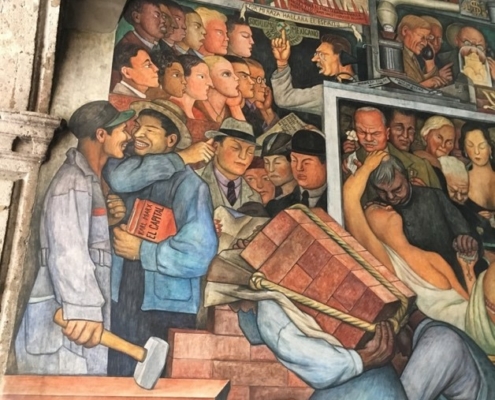
Lateinamerika und das östliche Europa. Ideen für historische Vergleiche
UR historian Klaus Buchenau reveals striking regional differences shaped by distinctive social and historical contexts in Latin America and Southeast Europe.
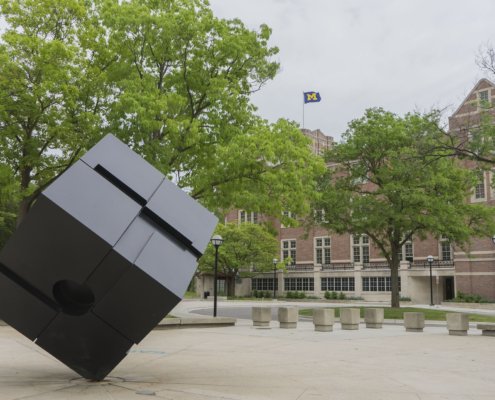 IMAGO / Pond5 Images
IMAGO / Pond5 ImagesTurning Points, Hidden Treasures and Touchdowns: One month in Ann Arbor
UR historian Timothy Nunan reflects on a month in Ann Arbor and how it enriched his research on Shi’a Islamist transformations of the world in the late 1970s.

2nd Graduate Workshop 2023 Report | Competing Sovereignties: Intertwinement, Contestation, Evolution
Learn more about the multiscalar and reflexive approaches to the contested concept of sovereignty developed in this 2021 workshop
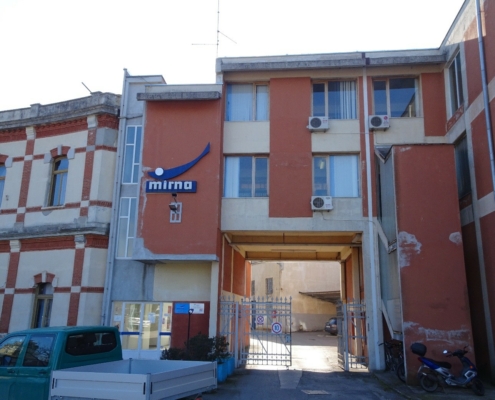 Ulf Brunnbauer
Ulf BrunnbauerCongealed Labor, Canned Fish: From the Adriatic towards a global history of the oil sardine
Ulf Brunnbauer takes us on a journey from the Adriatic to the Pacific, tracing the interconnections of human, environmental and animal actors who shape the global history of capitalism on multiple scales
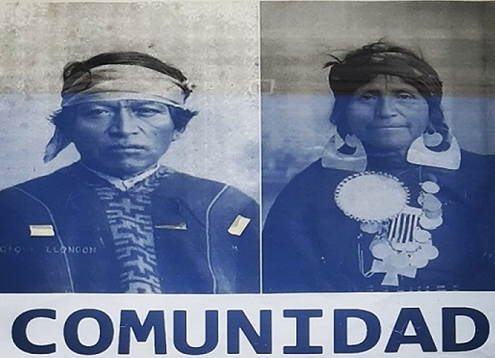 Igor Stipić / poster based on creative commons images
Igor Stipić / poster based on creative commons imagesPeople from the Land: A High school story of the Mapuche Indigenous people in Chile
How are radical high school protests, environmental extractivism and indigenous identities entangled in Chile? Igor Stipić offers insights based on his ethnographic research
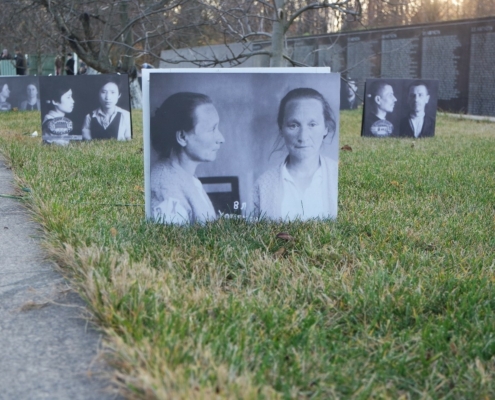 Melanie Hussinger
Melanie HussingerPhoto Essay | Herbst der Erinnerung. Partizipatives Gedenken an den Großen Terror | The Autumn of Memory: Participatory Remembrance of the Great Terror (Moscow, October 2021)
How did participatory remembrance of the Great Terror, from family memory to civil society endeavours, fit in Moscow's urban and mnemonic landscape shortly before the war against Ukraine? This photo essay offers moving insights
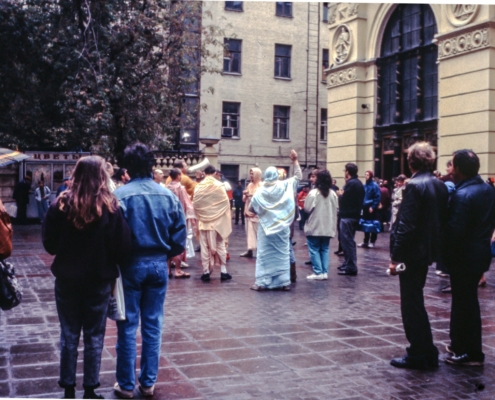 Image courtesy of Katharina Kucher and perestroika.visual-history.de
Image courtesy of Katharina Kucher and perestroika.visual-history.deThe Collapse of the Soviet Union and the Mormons
How did the attractiveness of the Mormon embodiment of US utopian, spiritual and material ideals shift in the turbulent realities of post-Soviet Russia? U Georgia historian Joseph Kellner investigates
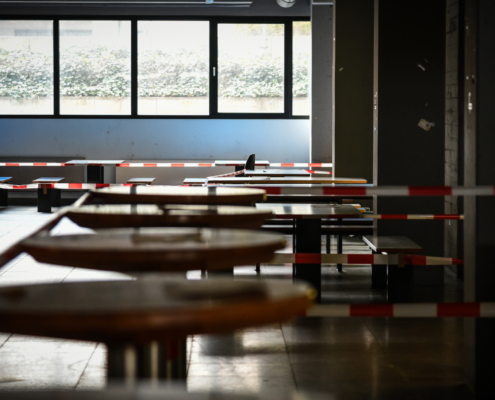 Julia Dragan/UR
Julia Dragan/UR The Return of Narratives | Conference Report: Crisis Narratives and the Pandemic
What can multiscalar area studies tell us about the impact of the COVID-19 pandemic around the world? Read more in this report
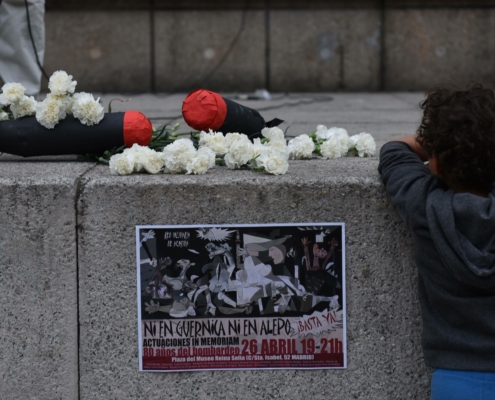 IMAGO / Pacific Press Agency / Jorge Sanz
IMAGO / Pacific Press Agency / Jorge SanzCommemorating National Martyrdom through Re-Creating the Past: Vukovar, Prijedor, Derry/Londonderry, and Gernika/Guernica
How do performative recreations across European post-conflict societies help antagonistic memories retain a multi-generational appeal? Berkeley doctoral researcher Blaze Joel investigates
 IMAGO / agefotostock
IMAGO / agefotostockTraditionen europäischer Sozialpolitiken und deren Nicht-Berücksichtigung am Ende des Kalten Krieges: Eine Spurensuche entlang von Arbeit und Gender
How were labour and social relations transformed at the end of the Cold War? What did neoliberal models and the effacement of progressive traditions mean for gender relations?
 IMAGO / Pacific Press Agency / Jorge Sanz
IMAGO / Pacific Press Agency / Jorge SanzCommemorating National Martyrdom through Re-Creating the Past: Vukovar, Prijedor, Derry/Londonderry, and Gernika/Guernica
How do performative recreations across European post-conflict societies help antagonistic memories retain a multi-generational appeal? Berkeley doctoral researcher Blaze Joel investigates
 IMAGO / ZUMA Wire
IMAGO / ZUMA WireTadeusz Kościuszko, Poland-Lithuania and the Age of Atlantic Revolutions
How were efforts to secure US and Polish-Lithuanian independence linked in the Age of Atlantic revolution? And in what ways were attempts to free slaves and emancipate peasants connected? Richard Butterwick-Pawlikowski takes us on a transatlantic journey with Tadeusz Kościuszko at the helm
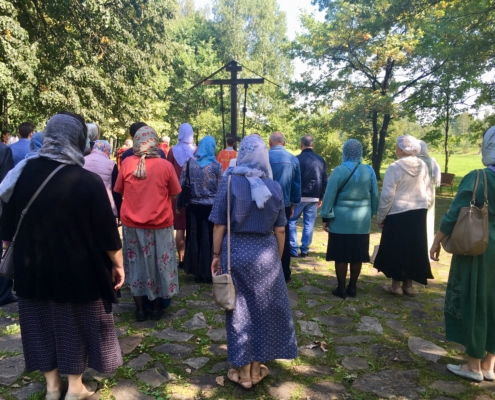 Selbi Durdiyeva
Selbi DurdiyevaTheorizing binaries through auto-ethnography, method, and commoning: Reflections from the field
Revisiting her fieldwork at a Russian memorial site, the author offers autoethnographic reflections on moving away from imposing academic authority towards the common production of knowledge alongside subjects
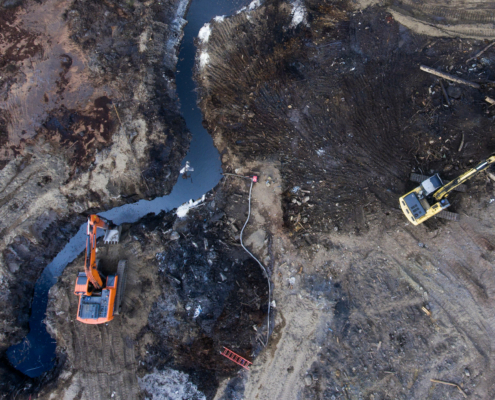 IMAGO/ Kirill Kukhmar/TASS
IMAGO/ Kirill Kukhmar/TASSRacial Capitalocene Binaries: Approaching environmental destruction in the Russian context
Sasha Shestakova explores intersections of climate change, extractivism and the destruction of indigenous cultures in Russia’s Far North, querying human/nature and North/South binaries while tracing colonialism’s long-term legacies.
 IMAGO / agefotostock
IMAGO / agefotostockTransatlantic Circulations of Conspiracy Fiction: From Europe to the United States
Conspiracy theories are often in the (fake) news today. Although they are closer to fiction than reality, Chloé Chaudet, a recent visiting researcher at the ScienceCampus, shows that cultural and literary studies lack the tools to develop a transmedial narratology of conspiracy discourses which could investigate them in their historical and transatlantic dimensions.
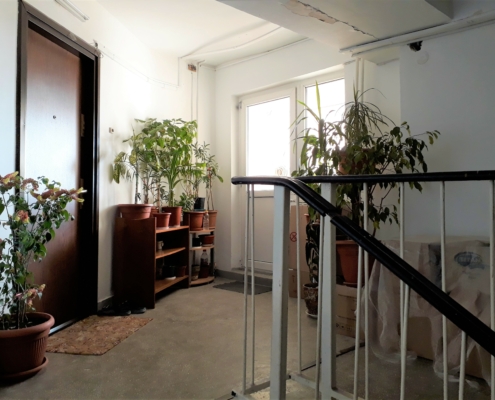 Jana Stöxen
Jana StöxenPost-socialism in Passing: Impressions from field research conducted off the beaten track | Postsozialismus im Vorbeigehen: Eindrücke einer Feldforschung abseits der großen Straßen
Jana Stöxen, winner of the inaugural Regensburg Prize for Prize for Outstanding Master's Theses, presents a photo essay based on her ethnographic field research conducted in Bucharest. She traced the ways post-socialism forms part of everyday life, shaping the community in a block of flats in the Berceni district of the Romanian capital. The texts are in English and German.
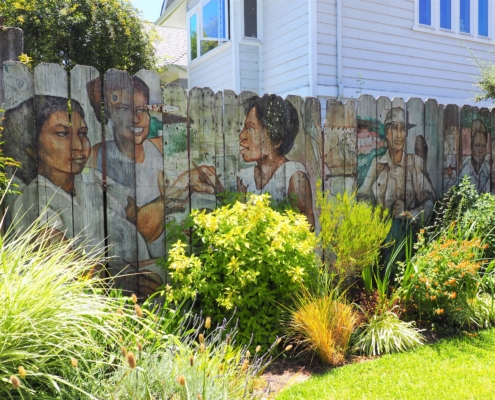 Verena Baier
Verena BaierSometimes the Past is Just Around the Corner: Impressions from Berkeley
In the 1980s Berkeley was one of the centers of US-Americans’ Nicaragua solidarity work, which supported the Sandinista Revolution. Today remnants from back then can not only be found in UC Berkeley’s extensive archives but also hidden throughout the city. PhD researcher Verena Baier explored them while on a research fellowship there in 2019/20.

Workshop Report: Migration, Mediality, Liminality
In collaboration with international partners from U Michigan and U Arizona, the ScienceCampus explored how migration experiences, in the past and today, are mediated through a variety of formats, giving expression to the liminality of global and regional mobilities.
Imprint
Frictions: Europe, America and Global Transformations – Blogjournal Editorial Office
Department for Interdisciplinary and Multiscalar Area Studies (DIMAS)
Universität Regensburg
Universitätsstr. 31
93053 Regensburg
Telefon: +49 941 943 5964
Fax: (++49 941) 943 54 27
frictions@europeamerica.de
frictions.europeamerica.de
